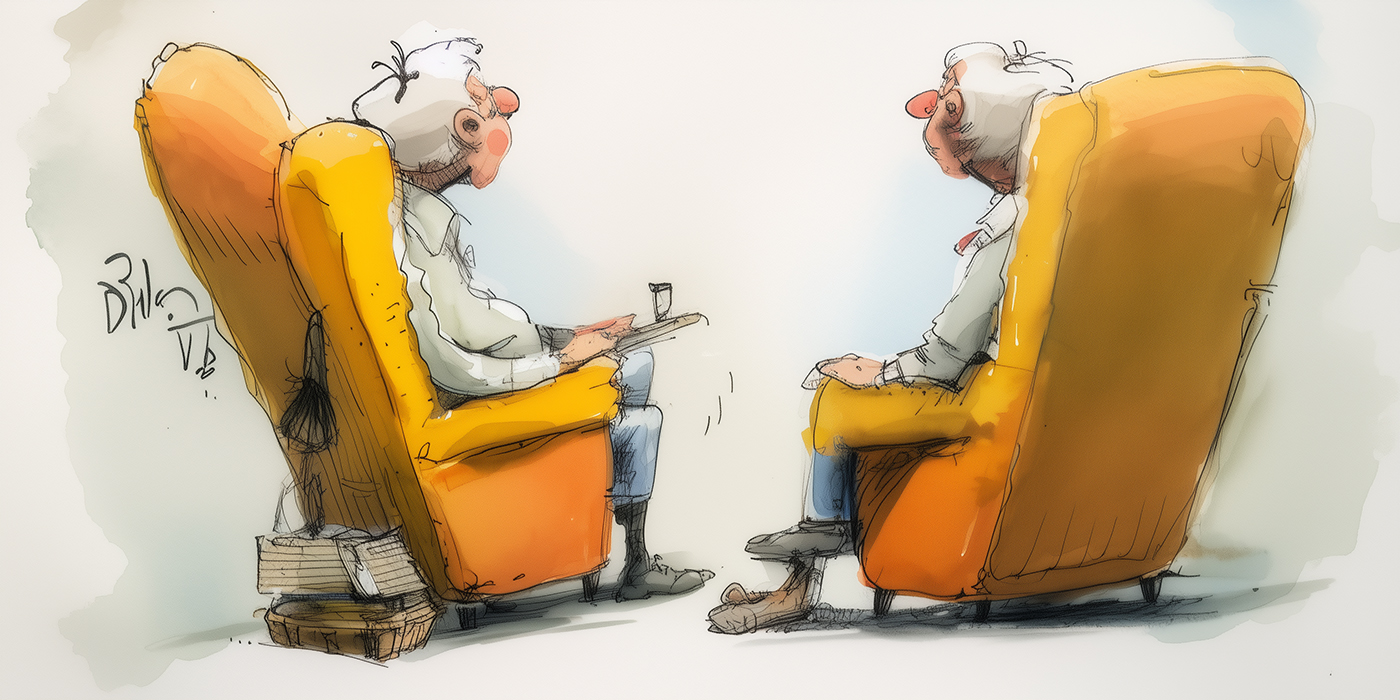I once worked in a nursing home, with senior residents who were trying to cope with the limitations of aging. At times many of them became disillusioned with their physical and mental limitations. One woman in particular had to go for dialysis two or three times a week. I told her that although I understood her discouragement over her condition, the dialysis was the very thing keeping her alive! It was the reason she was able to see her grandchildren and friends who came to visit her. She said that remembering my comments helped her to be a lot more positive.
Now that I’m a senior citizen myself, I need to take my own advice. In recent years I’ve developed an asthmatic condition that makes it necessary for me to stay indoors in cold weather. I have medication and exercises that help me manage my condition. But I find that I must now listen to the same counsel that I gave to so many of those nursing home residents about keeping positive.
As I’ve grown older, I’ve noticed that others my age encounter chronic health conditions that need to be continuously managed. These conditions are different from acute illnesses or accidents, such as colds and muscle sprains. Those illnesses are treated and the sufferers soon get back to their regular routine. But accepting a chronic condition takes a different set of mental skills—much like the grieving process after experiencing a significant loss in life.
My own struggle to accept my asthma as a chronic condition is much like the struggle I went through in accepting that I was a sex addict. Even after I’d been through a rehabilitation program and was an SA member for many years, I still had the notion in the back of my mind that eventually I would be “cured” and would someday be “normal.” I have always liked to be in control. I would take great pride in being able to see a problem, come up with a solution, and then fix the problem. Accepting that I have a condition that I must live with and manage—with the strength of my Higher Power—was not easy, especially because pride is one of my main character defects.
Some years ago, a member of our local fellowship shared a powerful experience he had at an International SA conference. He attended a session led by a panel of SA members who had very long-term sobriety, but who had experienced a slip and lost their sobriety. They shared that their length of sobriety became an excuse for complacency, which led to their acting out. Today I try to keep that sharing in mind whenever I find myself starting to take credit for any long-term sobriety.
A spiritual mentor once told me that of all the people who come to him for guidance, addicts like me have a special advantage. The people who come to him with a situational condition, like a divorce or a recent death, eventually are able to get over the pain and move on with their lives. He may not see them again until the next crisis occurs. But we addicts know that we have a lifetime condition which makes it necessary for us to accept God’s strength and power every single day.
I am like a person walking on the edge of a cliff. Every day my journey is a constant awareness that God alone can keep me from falling off the edge. My friend helped me see that such a realization is itself a blessing and a bridge to connect with my Higher Power on a level many people never reach.
Now I’m happy to identify myself as a recovering sex addict at the beginning of our SA meetings. This also helps me learn to accept the physical limitations that come with aging. Both of these conditions have helped me to develop the humility needed to ask for God’s strength just to get through each day. I have found that my attitude is crucial to my sobriety.
Anonymous






